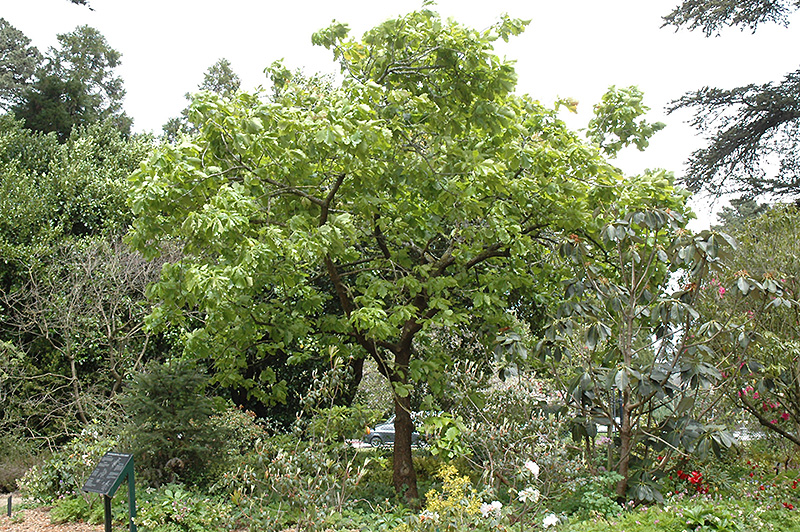Height: 80 feet Spread: 50 feet
Sunlight:
Hardiness Zone: 5b Other Names: Daimio Oak Description: This regal shade tree, with its picturesque rounded habit of growth and far reaching branches, is best for larger landscapes; leaves are the largest of the oak species; relatively fast growing; in early years it has a shrub-like habit. Ornamental Features Oak, Japanese Emperor has dark green deciduous foliage on a tree with a round habit of growth. The large glossy lobed leaves turn brown in fall. However, the fruit can be messy in the landscape and may require occasional clean-up. The furrowed tan bark adds an interesting dimension to the landscape. Landscape Attributes Oak, Japanese Emperor is a dense deciduous tree with a more or less rounded form. Its relatively coarse texture can be used to stand it apart from other landscape plants with finer foliage. This tree will require occasional maintenance and upkeep, and is best pruned in late winter once the threat of extreme cold has passed. It is a good choice for attracting birds and squirrels to your yard. Gardeners should be aware of the following characteristic(s) that may warrant special consideration; Oak, Japanese Emperor is recommended for the following landscape applications; Planting & Growing Oak, Japanese Emperor will grow to be about 80 feet tall at maturity, with a spread of 50 feet. It has a high canopy of foliage that sits well above the ground, and should not be planted underneath power lines. As it matures, the lower branches of this tree can be strategically removed to create a high enough canopy to support unobstructed human traffic underneath. It grows at a medium rate, and under ideal conditions can be expected to live to a ripe old age of 300 years or more; think of this as a heritage tree for future generations! This tree should only be grown in full sunlight. It does best in average to evenly moist conditions, but will not tolerate standing water. This plant should be periodically fertilized throughout the active growing season with a specially-formulated acidic fertilizer. It is not particular as to soil type, but has a definite preference for acidic soils. It is somewhat tolerant of urban pollution. This species is not originally from North America. Special Attributes Dentata Oaks start producing acorns between 25 and 40 years of age. The acorns are 1 inch and can take up to 1 year to mature. The leaves can stay on the tree well into winter.![]()
![]()
![]()
![]()
![]()
![]()
![]()
![]()
![]()
![]()

